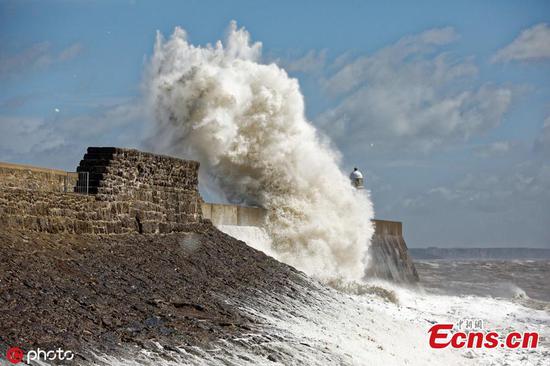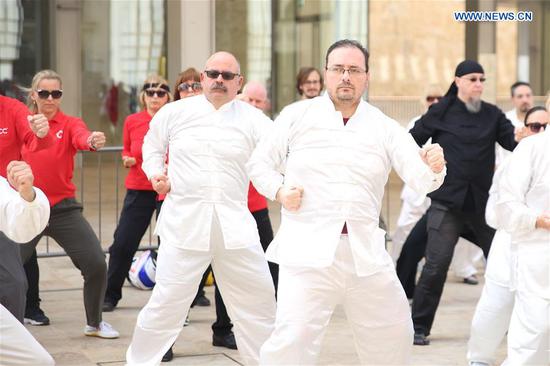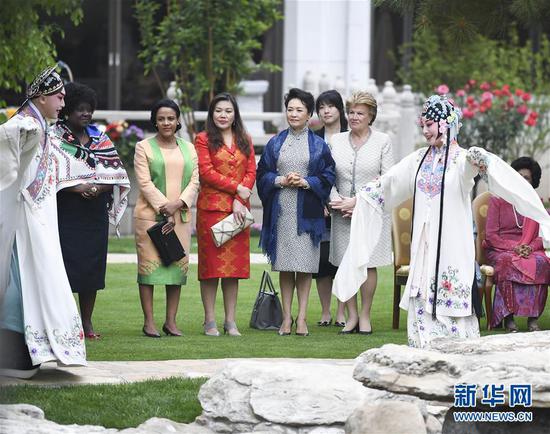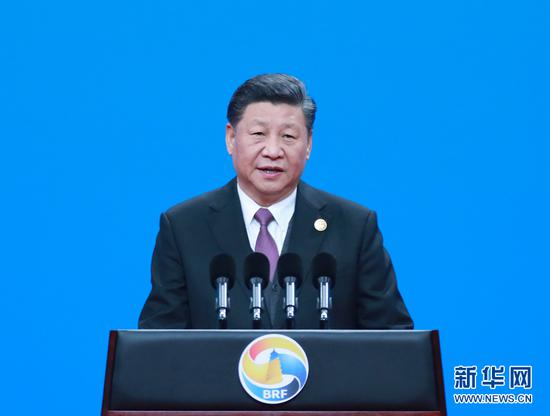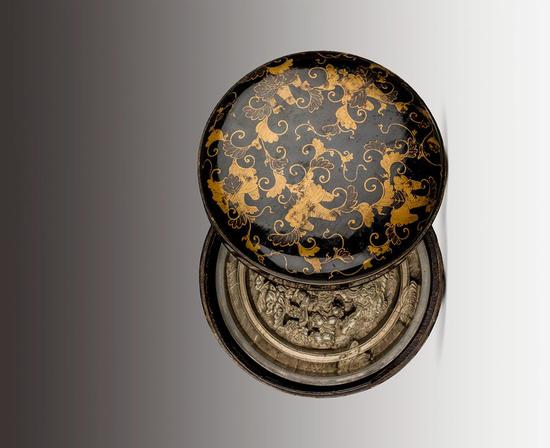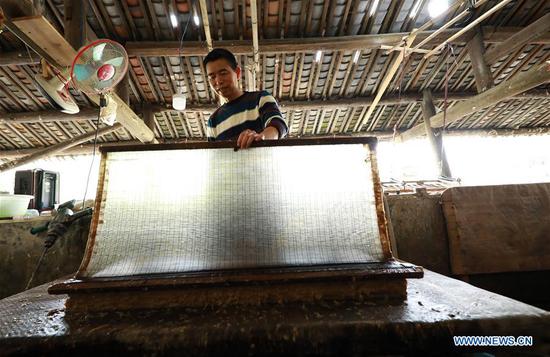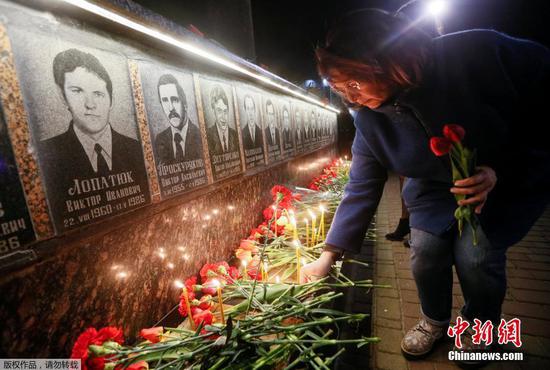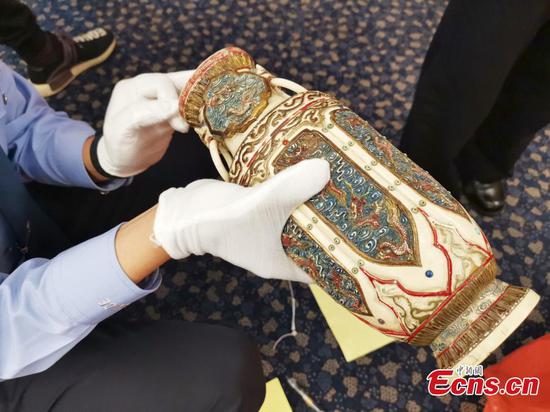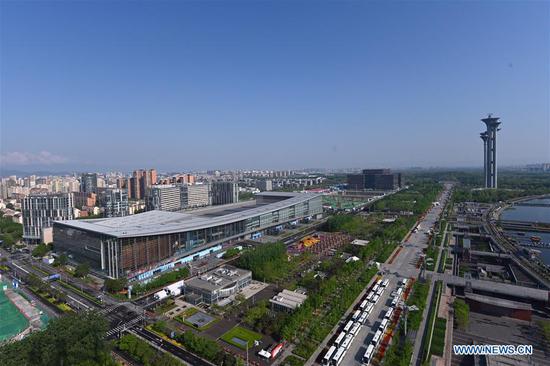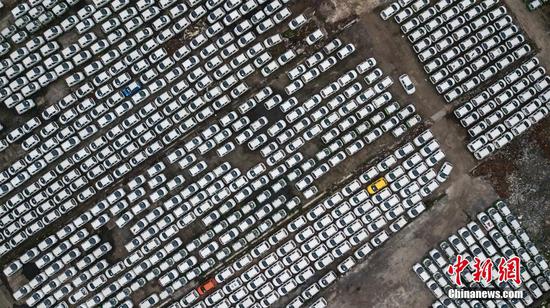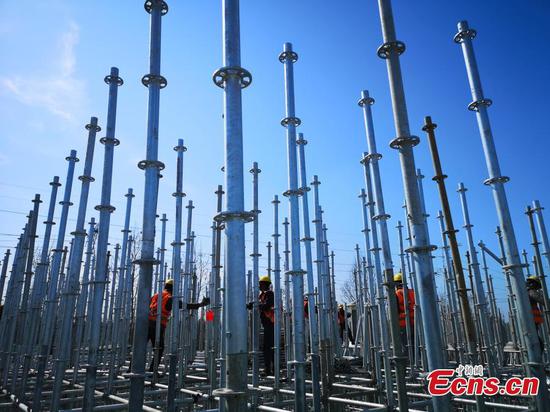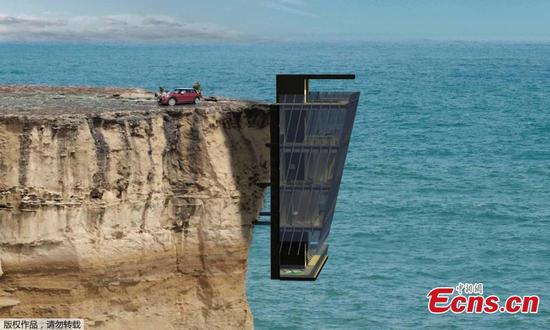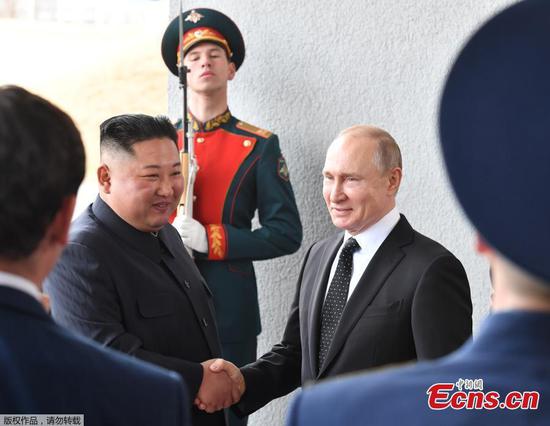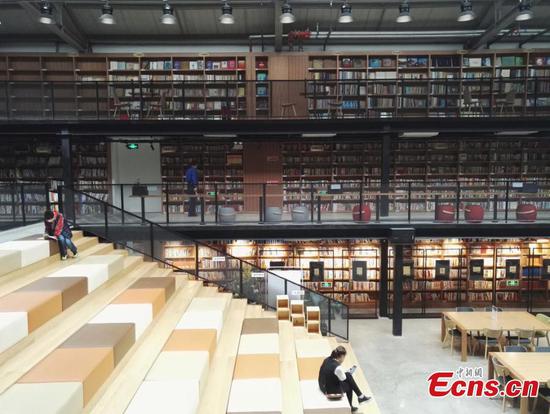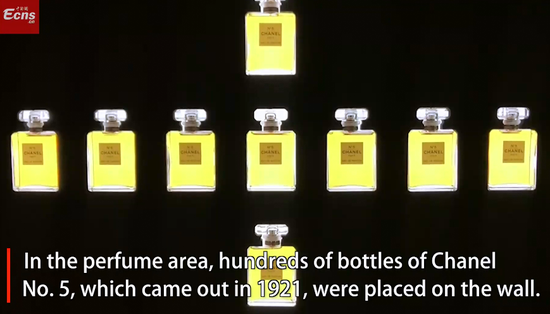Two days after French President Emmanuel Macron offered additional concessions worth billions of euros, thousands of "yellow vests" marched across French cities on Saturday for the 24th weekend in a row, though with noticeable fatigue.
The protest drew 23,600 participants countrywide, of which 2,600 were in the capital Paris, the second lowest turnout since the movement started five months ago, Interior Ministry estimated.
Last Saturday, 27,900 people took to the streets across the country, including 9,000 in the capital.
The number of protesters has dwindled over the past weeks. At its start in November of 2018, the movement had drawn 287,710 people. It has been losing steam after Macron offered 10 billion euros (11.15 billion U.S. dollars) to bolster purchasing power and make his fiscal policy fairer.
On Thursday, presenting the conclusions of month-long national consultations, the president decided to silent criticisms of him being out of touch, pledging additional 5 billion euros to further cut income tax and help retired people enjoying higher pensions.
Amid signs of weakening and as some want more convergence, hard-left trade union confederation CGT joined "yellow vests" in a calm rally, unlike violent scuffles of past weeks. The same atmosphere was reported in other French cities, notably in Toulouse, Bordeaux, Montpellier and Marseille.
In eastern city of Strasbourg, however, tension flared when riot police fired tear gas to push back a group of demonstrators who tried to reach the barricaded neighborhood where the European Parliament is located.
Videos showed hooded individuals torching several rubbish bins and throwing stones and other projectiles at the police, while the latter used tear gas to disperse them. The clash had led to the arrest of 42 people, according to regional authorities.
The "yellow vest" movement, a nationwide protest against weak economic performance and stagnant income increase, started as a campaign against surge in fuel prices last November.
It has since turned into a bigger uprising denouncing a squeeze on household spending, high living costs while demanding better participation in the country's democratic process, with some pressing the president to step down. (1 euro = 1.115 U.S. dollar)










